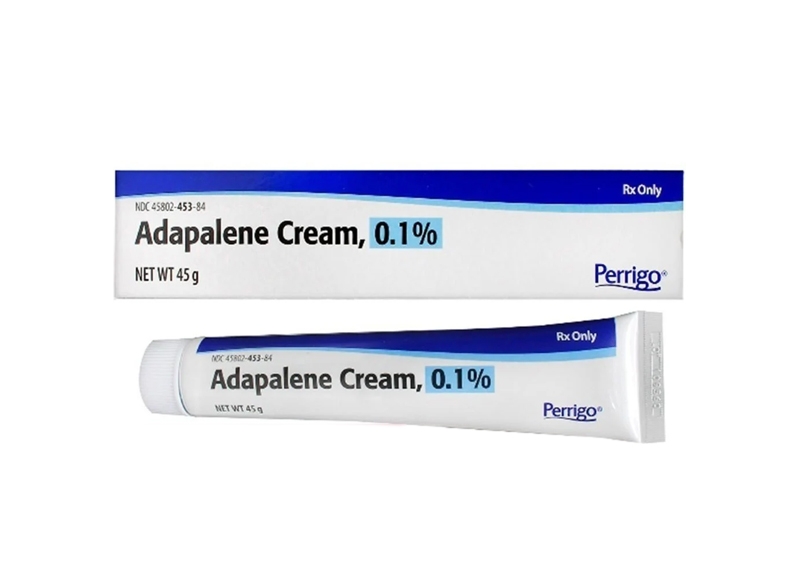Adapalene
Cream (widely known as Differin) is an acne treatment used on the face, chest
or back. It has an anti-inflammatory effect, aiming to reduce blackheads,
soreness and irritation. Adapalene works by unblocking pores, reducing
inflammation, mild spots as well as blackheads and whiteheads. It is often
prescribed in early acne.
Adapalene
belongs to a group of medicines called retinoids; it helps to reduce
inflammation and black and white head formation on the outer layer of the skin.
Adapalene is an advanced third generation retinoid which exhibits many of the
same effects as previous generation medicines like tretinoin but is often
tolerated better.
Adapalene
will reduce redness and inflammation for many, however, you may have to wait
four weeks before you start seeing the effectiveness of the gel in clearing up
acne. Acne is likely to flare up after stopping treatment, to avoid this you
may have to apply a lighter dose of the acne treatment for some years after to
keep the condition under control.
After
removing any makeup and washing the face, a thin film of the gel should be
applied to a clean and dry skin on the acne affected area once a day before
going to bed. Wash your hands thoroughly after application as the gel can
bleach fabrics and hair. Avoid any contact with the eyes, mouth, lips and
nostrils and do not apply to broken skin. The gel will not work more
effectively or any faster if it is applied more times than it is prescribed.
In the
event you miss a dose, it is safe to apply the missed dose as soon as possible.
However, if enough time has passed that you should be applying your next dose
instead, simply skip the missed dose and resume your typical application
schedule.
Always use
this medication exactly as your clinician has told you. Check with our clinical
team or your GP or pharmacist if you are not sure.
Medicines
and their possible side effects can affect individual people in different ways.
The following are some of the side effects that are known to be associated with
this medicine. Just because a side effect is stated here, it does not mean that
all people using this medicine will experience that or any side effect.
Adapalene
can cause irritation to the skin, dryness, a burning sensation and redness. In
rare cases the gel can cause a local skin reaction, discomfort, itchiness or
peeling skin. It can also make the skin more sensitive to the sun so it's
important you don't expose the affected area to too much sunlight or use
sunbeds.
For full
information on side effects and correct use, see the patient information
leaflet. If any side effects concern you, or you are experiencing any of the
side effects mentioned in the patient information leaflet whilst taking this
medication, please contact our clinical team or speak to your GP.
Adapalene Cream should not be applied to skin that is broken or has
eczema. It should not come into contact with the eyes, mouth, nostrils or
mucous membranes. If the product enters the eye, wash immediately with warm
water. Excessive exposure to sunlight or UV light (including sunbeds) should be
avoided whilst using Adapalene Gel.
While Adapalene is absorbed into the body in very small quantities it is
not safe to apply the gel whilst pregnant or breastfeeding.
Get emergency medical help if you have signs of an allergic reaction to
this medication. These include:
- Hives
- Dizziness
- Fast or pounding heartbeats
- Wheezing
- Difficult breathing
- Swelling of your face, lips, tongue, or throat.
It is important that you let us know which prescription,
over-the-counter medicines and recreational drugs you are currently taking. You
must also tell us about any other medical conditions that you currently have
(or had in the past). This will help us ensure the prescribed medication is
safe and appropriate for you to take.
For full information on warnings, medication interactions and
contraindications, refer to the Patient Information Leaflet. Please read all
packaging and the Patient Information Leaflet before taking any new medicine
and inform our clinical team or your GP of medicines you are taking or intend
to take.





